Save the Piggy Bank! Shop Healthy on a Budget
Save the Piggy Bank! Shop Healthy on a Budget
Noor Baloch, MSPH
Health Educator

I’ve been making the change to shop healthier as I begin to prepare more of my own meals. My first thought about making the swap to healthier options? THIS IS EXPENSIVE! After some time though, I got the hang of it. Choosing better eating options can be daunting. Not only was I trying to create positive habits, but I was also trying to do so while sticking to my monthly budget. In celebration of National Nutrition Month, I’ve got some tips to make shopping healthy on a budget easier.
Plan Your Meals
When trying to shop for healthy options, having a set plan for grocery shopping can make the experience less stressful and save you money. Plan your meals around sales or discounts in your grocery store.  Try to incorporate whole grains, lean meat, and nutrient-rich fruits and vegetables in your meals. Locating sales can point you to a meal as well. Salmon, quinoa, and asparagus on sale? Bake the salmon and asparagus and serve over quinoa. Once you’ve located the items you want to purchase, add store or manufacturer’s coupons to stack your savings.
Try to incorporate whole grains, lean meat, and nutrient-rich fruits and vegetables in your meals. Locating sales can point you to a meal as well. Salmon, quinoa, and asparagus on sale? Bake the salmon and asparagus and serve over quinoa. Once you’ve located the items you want to purchase, add store or manufacturer’s coupons to stack your savings.
Buy in Bulk
My parents have bought their groceries in bulk since I was a kid. I figured doing the same would make sense as I began making my own meals. However, it turns out buying in bulk is different when you’re doing it for a family of five versus just for yourself. Don’t rule out buying in bulk though. Buying non-perishable necessities in bulk can save you a penny and help you stay out of the grocery store. Beans, lentils, and whole grains are great items to keep stocked.
Work the Meat Counter

So you’ve planned ahead and this week, turkey breasts are on sale. Consider purchasing a larger quantity and making leftovers to freeze for later or use the meat in different ways, and enjoy a diverse selection of meals throughout the week. Another option is skipping the meat altogether. Meat is often the highest dollar ingredient in a recipe, so try incorporating a few days out of the week to go meatless. Meatless Mondays could save you some bucks and also provide a chance to try other sources of protein such as nuts, eggs, and beans.
Try the Farmers Market
Shopping at a farmers' market is one way to support your local economy and purchase fresh goods. In many cases, food from the farmers market is more affordable than food from the grocery store. Try to keep up with the goods in season and find great deals. There are sources like Local Harvest to find what your local farmers are harvesting right now.
There are many ways to start moving towards a healthier lifestyle. Following these tips can point you in the right direction. If you’re considering making larger changes in your eating habits, talk to a registered dietician. They can provide guidance and tips to help you progress.
Sources: 
Eat Right National Nutrition Month
Eat Right Shop Healthy on a Budget
Healthy Eating Games and Activities
Featured Poe Program: Mission Nutrition

Grade Level: 6th- 8th
Program Length: 60 minutes
Mission Nutrition is an interactive and conversational program that explores the challenge of balancing food and physical activity. Activities are designed to help participants discover the importance of food labels and the barriers to healthy eating and the risk associated with over- and under-eating. Participants are also helped to understand messages in the media targeting teens, and how they affect their food choices.
Schedule a visit online or call 919-231-4006.
Teacher Activity: Create a Veggie Person
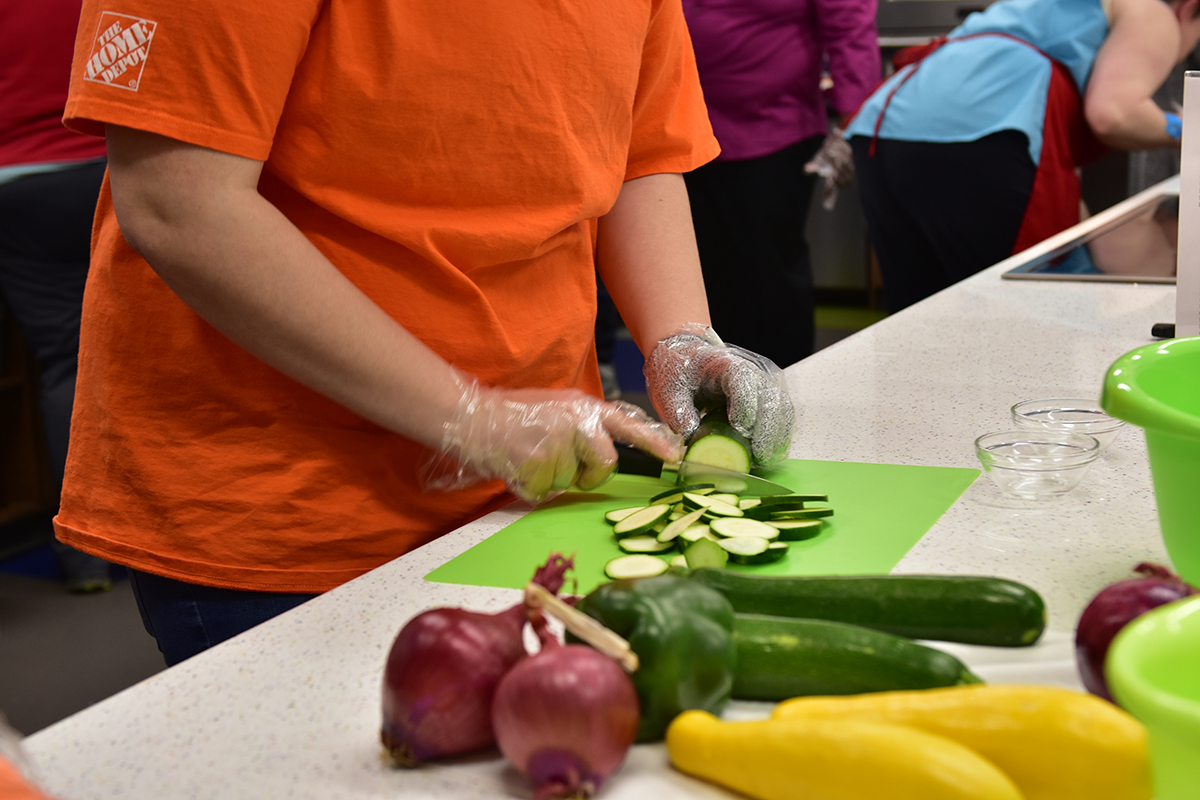 Grade Level: K-5
Grade Level: K-5
Make eating vegetables fun for kids by introducing veggies in a new way. Allow the students to create their own “vegetable people” using different vegetables such as cucumbers, olives, potatoes, and celery. Using toothpicks, encourage students to give their “vegetable person” a name and personality. Once they have completed building their “person,” reflect on the different vegetables used and their benefits. Taste-tests are encouraged!
Healthy Smile, Healthy Life: Caring for Teeth at All Ages and Stages of Life
Healthy Smile, Healthy Life: Caring for Teeth at All Ages and Stages
Alaina Hart, MPH, CHES
Senior Health Educator
As we celebrate Children’s Dental Health Month, it’s important to not only focus on the healthy habits we want our kids to practice but also highlight the common dental-health concerns and proper care adults should focus on throughout life. The World Health Organization (WHO) states “Oral diseases are the most common noncommunicable diseases (NCDs) that affect people throughout their lifetime.” Following these tips can help keep your teeth healthy and strong throughout your entire life.
Baby Teeth
A common question asked about baby teeth is "why are they so important to take care of when they are just going to fall out?” Here's the answer. Baby teeth are an important part of children’s development in learning to chew, talk, and smile. They also hold a place for permanent teeth to come in later. If baby teeth aren’t cared for properly, they can cause issues such as crowding, or crooked permanent teeth.
Tips for care:

- Regular dental habits should start even before teeth push through the gums by wiping the baby’s mouth and gums with a clean washcloth.
- Once teeth have come through the gums, children’s teeth should be brushed twice daily with a small amount of fluoride toothpaste no larger than a grain of rice or small smear.
- Children over two should continue brushing habits twice a day using a pea-size amount of fluoride toothpaste.
- According to the American Dental Association (ADA), babies should visit the dentist no later than their first birthday. The dentist will not only check for cavities but they will also show you how to take care of baby’s teeth.
- After a child's first birthday, regular dentist visits every 6 months should begin.
- When your child has two teeth that touch one another, it is important to start cleaning between teeth.
Kids and Teens:
As permanent teeth are starting to make an appearance, this is a great time to introduce new dental hygiene skills and reinforce good dental health habits.
Tips for care: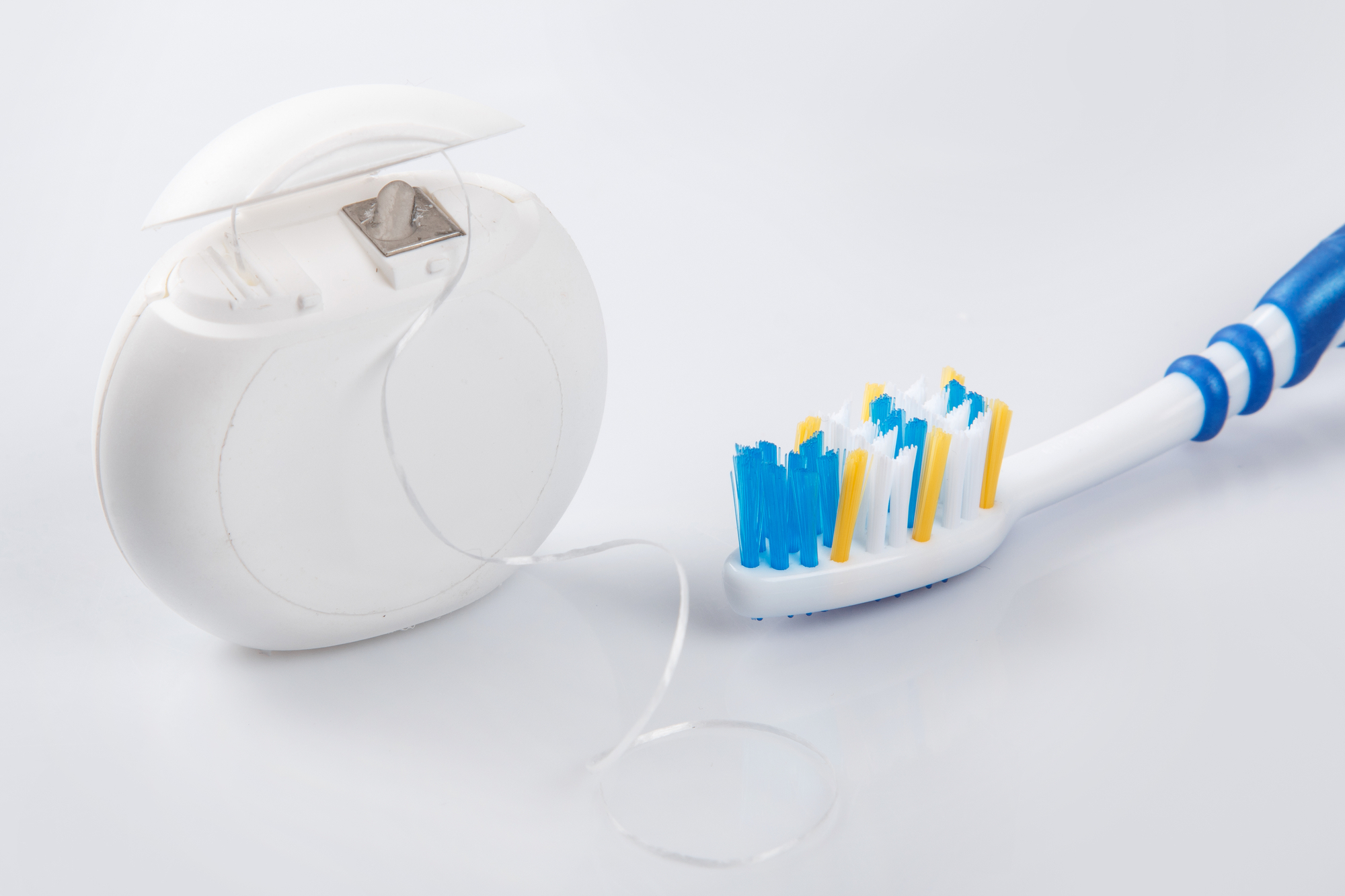
- Watch children brush their teeth, especially those under six, to make sure they are cleaning all tooth surfaces and not swallowing toothpaste.
- New skills such as flossing and using mouthwash can be introduced.
- Make sure children take the time to thoroughly clean orthodontic devices, such as braces and retainers, well.
- Choose tap water from reliable safe sources when possible. Most tap water contains fluoride which helps prevent cavities and tooth decay.
- Continue guiding children towards healthier food and beverage choices which helps establish good oral health habits as they get older.
Adults:
With age, it becomes more important to take extra care of your teeth and oral health needs. A common myth is that losing your teeth is a normal part of aging. That is not so! If you continue to care for your teeth, they can last a lifetime. Although adults today tend to keep their teeth longer than previous generations, dental problems can still occur. Chronic diseases and physical limitations threaten oral health with tooth loss and decay.
Tips for care:
- Maintain healthy habits by brushing and flossing daily.
- Stay hydrated by choosing to drink water over sugar-sweetened drinks.
- Avoid tobacco products and limit alcohol use.
- Visit the dentist regularly for a complete check-up, even if you have dentures.
- Thoroughly clean partial or full dentures daily.
- Some medications can affect your dental health. Talk to your doctor about treatment options.
- If you have a chronic disease, such as diabetes, work to maintain control of it. This will also help decrease risks for other complications.
Pregnant Women:
There are so many things that parents-to-be have to think about before the baby comes, and oftentimes visiting the dentist gets left off the list. So, can you visit the dentist when you’re pregnant? Yes, it is safe and important to keep up with your regular dental check-ups during pregnancy. Not everyone may experience issues, but pregnancy can create some new mouth issues or make existing ones worse. Your dentist can help to answer all of those concerns.

Tips for care:
- Let your doctor know that you are pregnant or may be pregnant when you make your appointments.
- Brush and floss daily. You can pass on germs to your baby that could cause cavities when their teeth come in.
- Try to eat a balanced diet.
- If you are experiencing morning sickness often, try rinsing your mouth with a teaspoon of baking soda mixed with water to help prevent stomach acid from harming your teeth.
Overall, your best defenses for fighting dental health issues are brushing and flossing daily and regular visits to the dentist. It can sometimes be easier said than done, especially with all the other things we have to focus on. However, we know that the health of our mouth can affect the health of the rest of our body, so it’s important to make dental health and hygiene a priority.
Resources:
A healthy smile can last a lifetime
Oral Care Tips for the whole family
Featured Poe Program: Super Smiles
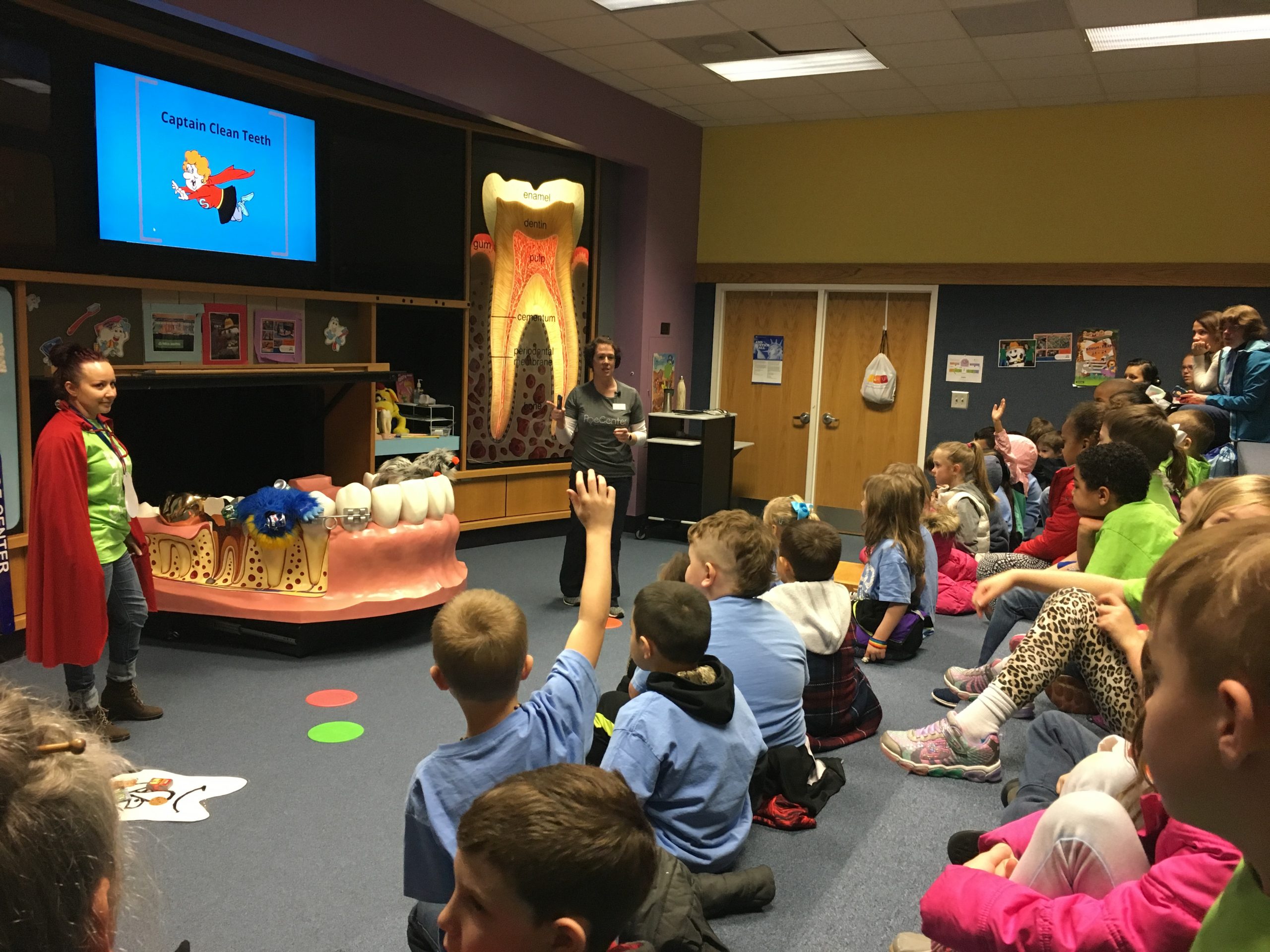
Grade Level: Kindergarten-1st grade
Program Length: 45 minutes
An exciting visit with Mr. Big Mouth teaches students the importance of proper brushing and flossing. Students play “Move It and Lose It” to demonstrate the exchange of primary teeth for permanent teeth. Annie and Moby™ take them on a visit to the dentist and special guest Captain Clean-Teeth helps them leave this fun program with… Super Smiles!
The Poe Center offers a variety of dental health programs. Call 919-231-4006 or go online to plan a program.
Teacher Activity: What's in Your Bones?
Grade Level: 5th-8th
Materials: 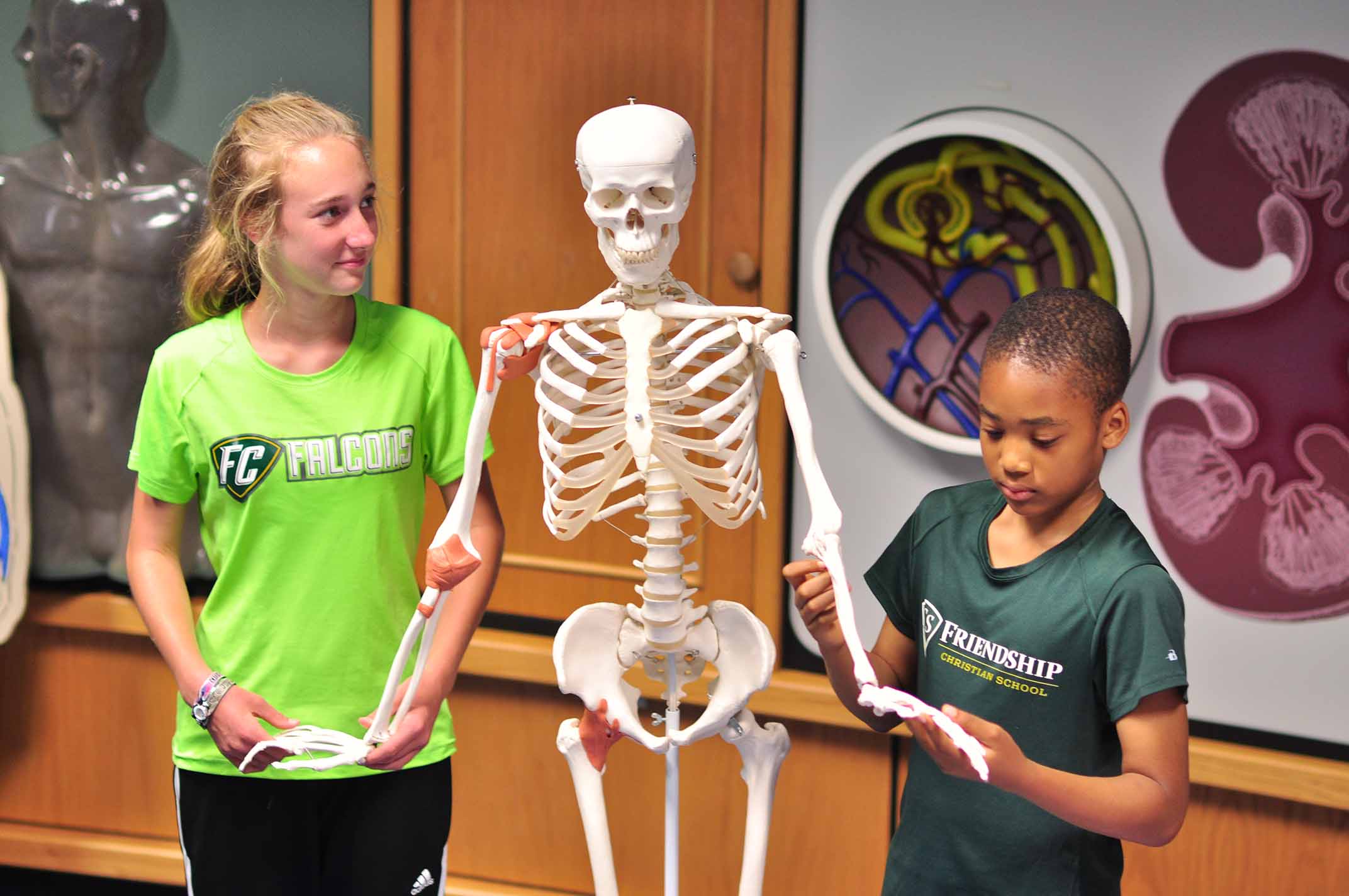
- 2 clear mason jars with lids
- 2 clean, cooked chicken wing bones with meat and cartilage removed
- Milk
- Vinegar
- Pins
1. Have students examine bones before they are placed in jars. Poke the bones with straight pins to test how hard the bones are. Instruct students to record results.
2. Place one chicken bone in a jar and cover it with milk. Place the other chicken bone in second jar and cover with vinegar. Cover both with lids and let soak overnight.
3. Each day for 7 days, replace milk in jar so it does not spoil.
4. After one week, take the bones from each jar and rinse them off. Allow students to test bones again by pricking with pins and bendings.
5. Record results. Which bone was stronger in the end? Discuss how the bone soaked in vinegar was weaker. Vinegar is an acid that pulls calcium from the bone. Sodas contain a type of acid called phosphoric acid, which can prevent your body from getting enough calcium if you choose soda over calcium-rich foods.
Keeping Your New Year's Resolutions
Keeping Your New Year's Resolutions
Cammie Bates, MPhys, LAT, ATC
Former Nutrition & Physical Activity Health Educator
You’ve made a New Year's resolution to exercise more, but a few weeks in, motivation is lacking. What can you do? It’s a common problem. It is estimated that 80% of resolutions fail by February. Studies also show it can take anywhere between 18-254 days to build a new habit, so don’t be discouraged. It takes time. Writing down your resolutions and re-framing them using positive language are helpful strategies to achieve the desired changes. With that in mind, here are some tips to make positive goals you can work towards.

Create a framework for your goals by setting “SMART” goals. SMART stands for Specific, Measurable, Achievable, Relevant, and Time-bound. A SMART goal could be “I will work out 3 times this week for 30 minutes.” “I will work out more” is not a SMART goal. See the difference?
Define achievable mini-goals that add up to a larger goal of “being healthy.” Try it! Make January’s goal to walk for 30 minutes 3 days each week. Then February’s goal is to replace a less healthy snack with a fruit or vegetable. Continue this way, and you are more likely to stay motivated and see progress.
It's also important to keep goals relevant to you. Consider the “why” of your goal. Do you want to exercise more so you can keep up with your kids, run a 5K, or be more independent? Knowing your “why” is important to success.
If you made resolutions to be more active, try these tips:
1.Start small. Injuries happen when one jumps into a workout plan with no prior experience. Start small and build from there. Even 10 minutes is beneficial so try taking the stairs or parking farther away. If you are currently not doing any exercise, you may want to check in with a doctor before you get started.
2. Find a workout buddy. A partner can encourage you and help you show up! Plus, you’ll have someone to think of new exercises and push you during your workout.
3. Find activities you enjoy. Going to the gym is not the only way to stay active. You are more likely to stick with your goals if you genuinely enjoy the activity.
4. Switch it up! Workouts can get stale so add in a new exercise, switch the order of your exercises, or adjust the time in between your reps.
5. Book a tour of a gym. Learn how to use the machines and weights and find out what classes are offered. Many gyms allow a trial period.
6. Consider group exercise classes. They can be a ton of fun, a great workout, and help build relationships with others.
7. Get creative. If you don’t have access to a gym, fear not! There are lots of workouts you can do from home with a set of cans, stairs, a chair, a laundry basket, or your own body weight.
8. Stay safe. Make sure you are doing an activity that is right for you and using equipment properly. If you are exercising outdoors, especially in the dark of winter, proper reflective gear can save a life.
9. Get some rest. It’s okay to feel too tired and skip a workout when the weather doesn’t cooperate. Listen to your body and rest when you need it. This is a journey to last a lifetime.
10. Follow @PoeCenter’s #PoeFit campaign on Twitter for tips on being active at home.
It’s important to think of exercise as a celebration of your body and what it can do, rather than view it as punishment. So often we workout to change the way we look, and though our bodies naturally change as we move more, consider this journey with your body as a journey of love. As you exercise, forget the final destination and enjoy the process of becoming. It’s okay to try and fail at an activity until you find one you love because our bodies are all different!

Maybe you haven’t found an exercise or workout plan you enjoy yet. Keep trying, keep moving, and keep loving your body. New Years resolution or not, this is a life journey you’re on to feel comfortable in your own skin. Focus on how you feel and what your body can do rather than a number on a scale. You are becoming a healthier, stronger version of yourself with every workout. Happy exercising!
Most People Fail to Achieve Their New Years Resolution (2019).
The First Rule of New Year's Resolutions.
Featured Poe Program: FITT for Life

Grade Level: 4th – 5th
Program Length: 60 minutes
You’ll feel great after taking this program as we introduce the importance of regular physical activity. Participants will experience the balance between eating and exercise while reinforcing the benefits of an active lifestyle. This program introduces the different levels of exercise as well as the components of a good athlete. We encourage participants to make a lifelong commitment to their health.
The Poe Center offers over a wide variety of nutrition and physical activity programs for all ages. Call 919-231-4006 or go online to plan a program.
Featured Crio Lesson: Nutrition at Your Fingertips
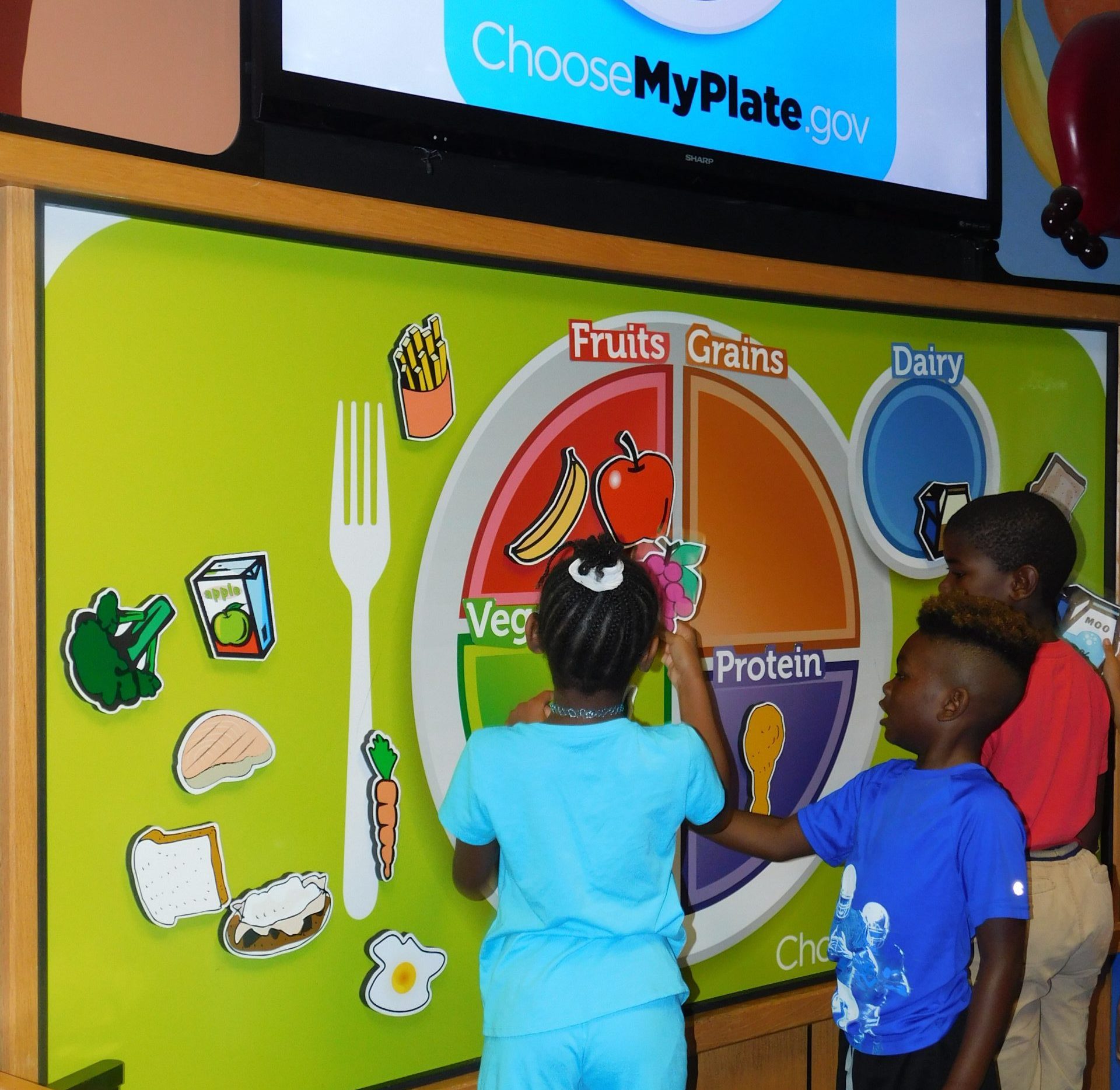
Grade Level: K - 5th grade | Program Length: 15-45 min
The Poe Center has partnered with SAS through Curriculum Pathways to provide online access to health science and health education lessons at no cost to teachers across the State of North Carolina. Designed to complement its health education curriculum, the Poe Center’s programs and online content are aligned with the North Carolina Department of Public Instruction’s Healthful Living and Science Essential Standards.
Poe's Holiday Gift to You
Happy holidays from the Poe Center!
 Please accept this small token as a symbol of our BIGGEST THANKS for supporting the Poe Center and health education in North Carolina.
Please accept this small token as a symbol of our BIGGEST THANKS for supporting the Poe Center and health education in North Carolina.
We hope you will enjoy these new downloadable SMARTPHONE BACKGROUNDS that showcase the Poe Center's custom artwork and images.
Directions: From your mobile device, click one of the links below for your desired wallpaper. The image will open in a new tab or window. Long click to save the image to your mobile device. Find the image in your camera roll/photo folder, and open your menu or settings to select the option to make it your wallpaper.
Available backgrounds:
Thanks to our artists and contributors:
Stephen Thrift, photography
Remi Ham, Lead Garden Educator & mural painter extraordinaire
Nicholas Bragg, artist
Sean Kernick, mural artist
Beechwood Metalworks
5 Tips to Wrap Up Your Stress this Holiday Season
5 Tips to Wrap Up your Stress this Holiday Season
By Rebecca Wenrich Wheeler, MA, MEd, CSAPC
Substance Use Prevention Specialist
The holidays can be a time of increased stress, but it doesn’t have to be! Stress is a part of life. Without a little stress, we wouldn’t be very productive. But when our negative reactions to stress begin to affect our quality of life and relationships, we need to make some changes. Read on to explore 5 tips to get control of your stress during the holidays or any time of the year.
Rethink stress
Threat or a challenge? When faced with a stressor, people tend to evaluate the stress as either a threat or a challenge. Appraising a stressor as a threat likely will make you defensive and can increase your anxiety response. Naming the stressor as a challenge puts you on the offense. You can gather your resources and engage with the stressor with less fear.
Know your triggers
What triggers tend to increase your feelings of stress? Understanding your triggers can be the key to controlling stress. If you are unsure what triggers your stress, think about patterns that occur before you feel stress, patterns of feeling both in your body and in the environment. If you know your triggers, you will be better able to step back before your stress gets out of hand.
H.A.L.T.
Have you noticed how difficult it can be to make decisions when your hungry, angry, lonely or tired? That’s when it’s time to H.A.L.T. When you assess and name how you feel, you can better stop your negative stress responses in their tracks.

- Hungry: Satisfy your hunger with a healthy meal, and avoid skipping meals. Foods such as berries, green leafy vegetables, fatty fish, tea, and walnuts have been shown to help boost brain power (Harvard, 2019).
- Angry: Put a damper on anger with relaxation and breathing exercises. Also taking a short walk can improve your mood. Check out these tips from the Mayo Clinic to put a halt to your anger.
- Lonely: Sometimes you can get so caught up in your work and school life, that you miss engaging with other people on an emotional level. A lack of engagement with others can make people feel lonely, thus increasing negative responses to stressors. Don’t underestimate the power of social support! (Mayo Clinic, 2018).
- Tired: When in the midst of completing long to-do lists, sleep often doesn’t make the list. Neglecting sleep not only contributes to slower decision making power, but also puts you at increased risk of illness and accidents.
Check out the CDC’s list of sleep tips.
Take time to exercise
Regular exercise not only will help you maintain your waistline this holiday season but also your sense of calm! Exercise is linked to increased stamina, lower blood pressure, improved mood and sleep, and clear thinking. (American Heart Association, 2017).

Prioritize what’s important
Getting caught up in the details of a busy calendar can cause us to lose sight of what’s most important. If you find yourself stressing over details, ask yourself if that detail will affect you or your loved ones a week, a month, or a year from now. If the answer is “no,” it might be time to rethink the priority assigned to that item. Ultimately, when we think back on the holidays we will hold most fondly the memories we created with our loved ones, not whether we checked every box on a to-do list.
Works Cited:
American Heart Association. (2017, January 9). Working Out to Relieve Stress.
Harvard Health Publishing. (2019). Foods linked to better brainpower.
Mayo Clinic Staff. (2018, June 27). Your crew matters: How to build social support.
Featured Poe Program: Mission Nutrition

Grade Level: 6th-8th | Program Length: 60 minutes
Research shows that a healthy diet is an important tool for managing stress. Mission Nutrition is an interactive and conversational program that explores the challenge of balancing food and physical activity. Activities are designed to help participants discover the importance of food labels and the barriers to healthy eating and the risk associated with over- and under-eating. Participants are also helped to understand messages in the media targeting teens, and how they affect their food choices.
Featured Crio Lesson: Let's Resolve Conflict
Grade Level: K - 5th grade | Program Length: 15-45 min

The Poe Center has partnered with SAS through Curriculum Pathways to provide online access to health science and health education lessons at no cost to teachers across the State of North Carolina. Designed to complement its health education curriculum, the Poe Center’s programs and online content are aligned with the North Carolina Department of Public Instruction’s Healthful Living and Science Essential Standards.











